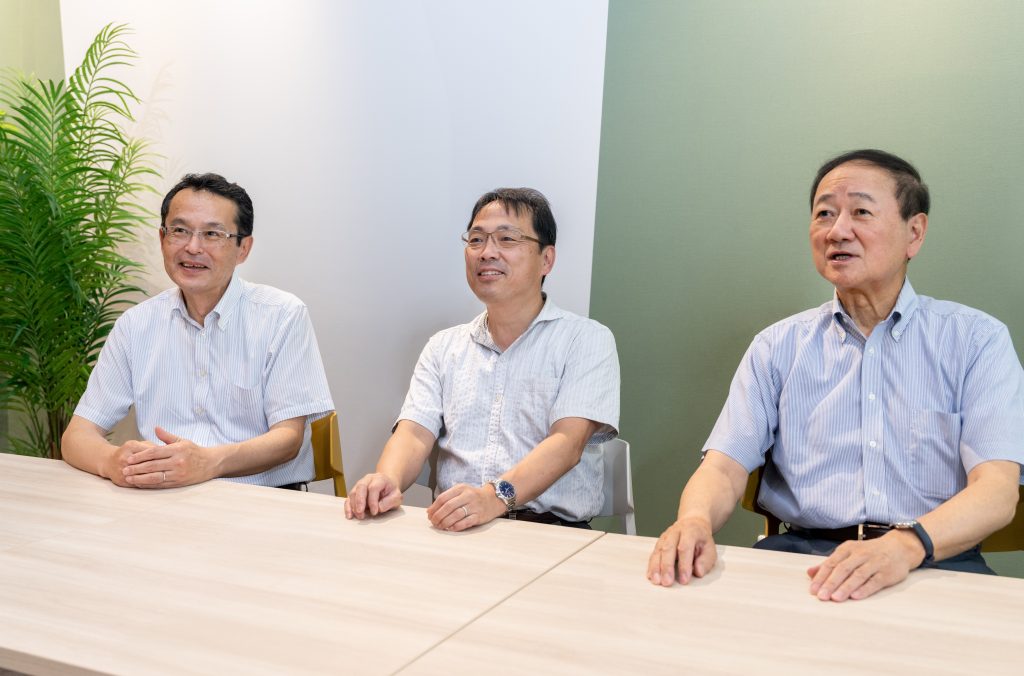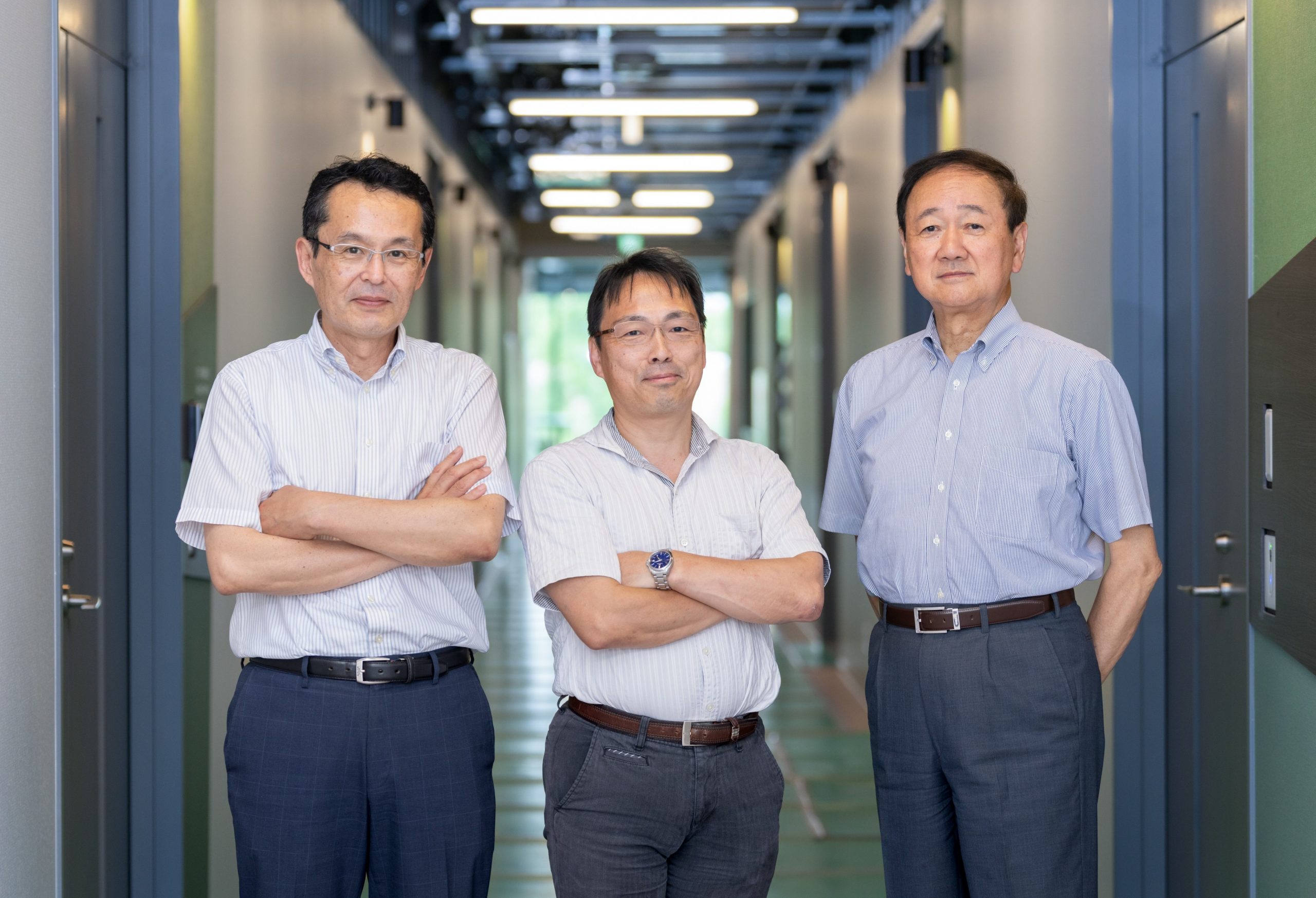Based on technology born at Matsushima Laboratory, Tokyo University of Science, 6 years ago
First of all, please tell us how your company was founded.
Mr. Imamura: The Company is a university-based startup established with the aim of social implementation of the unique high-sensitivity cDNA amplification method (TAS-Seq method), which was born in the laboratory of Professor Tsunaji Matsushima of the Institute of Medical Science, Tokyo University of Science (now also serving as a director of the company). The company was founded in June 2019, and for a while, it was headquartered on the Noda Campus of Tokyo University of Science, but with the expansion of its operations, it moved to Mitsui Link Lab Kashiwa-no-ha 1 in August last year. It's been about 10 months since we moved (at the time of the interview).
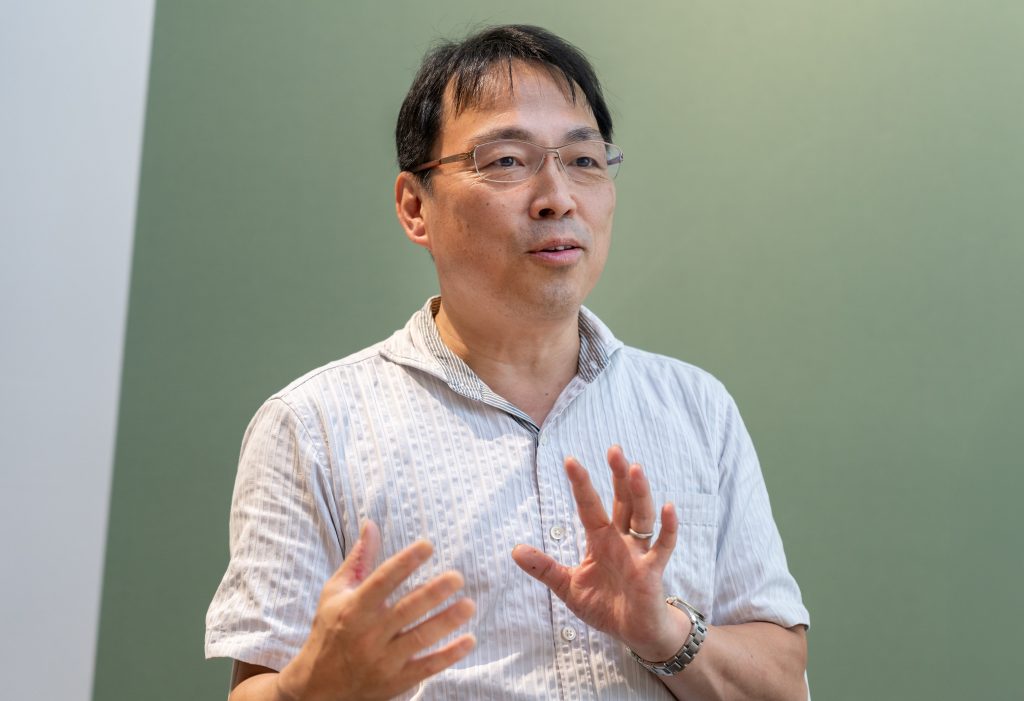
What kind of business are you currently developing?
Mr. Imamura: The current main business is a single cell RNA sequence using the proprietary TAS-Seq method. ※1 and single cell TCR repator analysis ※It will be a variety of next-generation sequencer commissioned analysis services such as 2. More recently, we have also started the diagnostic drug business, which is a biomarker for drug susceptibility prediction by applying genetic analysis technology. High-priced drugs are appearing one after another, mainly biopharmaceuticals such as antibody drugs, and there is also a growing demand to confirm whether the therapeutic effect can be expected before administration. We have just begun research and development of the diagnostic drug business.
※This is a method of examining the gene expression of individual cells that make up a tissue. In conventional gene expression analysis, cell populations were analyzed collectively, while single cell RNA sequences can analyze the function and activation status of various cells that make up tissue in detail.
※This is an "immune memory barcode" that reflects the history of two antigen sensitizations and the ability of individuals to respond to various pathogens. It is expected to be applied to research and diagnostics such as cancer, autoimmune diseases, and vaccine responses as indicators that reflect the potential of individual responses to various pathogens. (Immunogeneteqs Co., Ltd.: https://immunogeneteqs.com)
In April, we introduced a large-scale next-generation sequencing system to complete the work on our own.
Please tell us about your unique strengths.
Mr. Imamura: We believe that our strength lies in our unique high-sensitivity cDNA amplification method (TAS-Seq method) developed by Professor Matsushima. The mRNA contained in the cells is very small and needs to be amplified to be analyzed with a sequencer. With our technology, we can accurately grasp more gene expression information and excel in speed and cost, which is our advantage over our competitors.
Minowa-sama: In addition, since Professor Matsushima has been conducting research on inflammatory diseases and immune function, we are particularly good at genetic analysis by single cell analysis of cells in charge of immunity. Therefore, we are proud to have strengths in immunotherapy for cancer and the analysis of cells in charge of immunity inflammatory diseases such as atopic dermatitis.
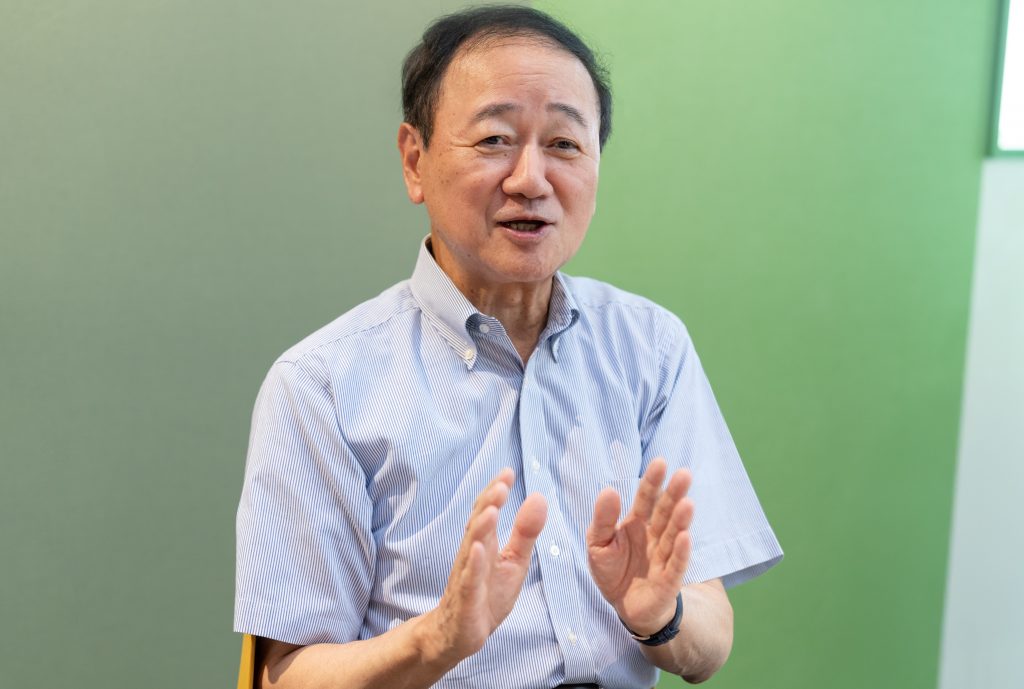
Mr. Imamura: In addition to the technical aspect, we introduced a super-fast, large next-generation sequencer in April this year to establish a system to complete all the work related to genetic analysis within the company. Since genetic information belongs to very advanced personal information, we will continue to strive to establish a system in which work can be completed in-house as much as possible in order to reduce the risk of information leakage to the outside.
I wanted to set up a base in Kashiwa-no-ha, which is now showing great excitement.
Please tell us why you chose Mitsui Link Lab Kashiwa-no-ha 1 as your base.
Mr. Imamura: Originally, we were a startup from Tokyo University of Science, and we still have great connections with universities, so we wanted to set up a business base close to the university. We visited several other candidate sites, but the Kashiwa-no-ha area, where many bio-based and life-science companies are concentrated, is now very exciting, and we have a connection with the National Cancer Center East Hospital, so we decided to relocate to Mitsui Link Lab Kashiwa-no-ha 1.
When you actually move in, what kind of impressions do you have?
Mr. Fukuoka: I think it is a well-built building designed for use as a lab. In April this year, we introduced a large next-generation sequencer that weighs more than 1 ton, but Mitsui Link Lab Kashiwa-no-ha 1 has a large elevator for heavy objects, and there was no problem with the load-bearing in the lab. The ceiling is high, and I think it can meet various specifications of the lab.
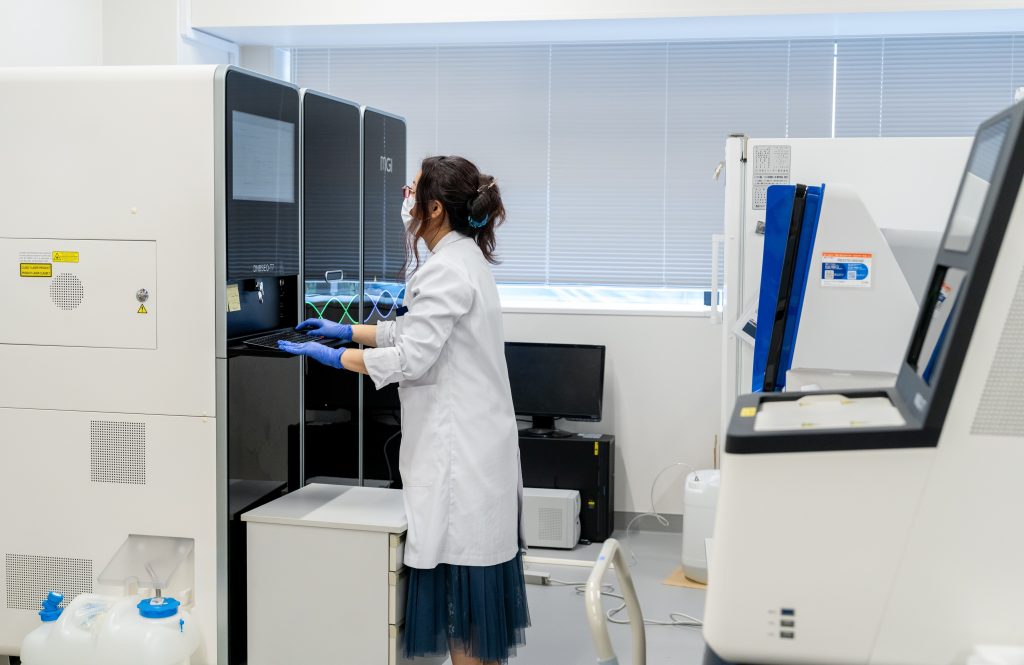
Do you have any opportunities to interact or collaborate with other tenants?
Mr. Imamura: There have been cases in which we hold meetings with customers introduced by tenant companies of Mitsui Link Lab Kashiwa-no-ha 1, and receive new inquiries through connections with customers of Mitsui Link Lab Shinkiba. Since I moved into Mitsui Link Lab Kashiwa-no-ha 1, I feel that the range of exchanges has gradually expanded.
I want to be a company that is said to be "Imnogenetics for genetic analysis."
Finally, please tell us about your future prospects.
Mr. Fukuoka: We want to continue to grow in the future, and we want to expand the scale of our business. Mitsui Link Lab has heard that it will continue to build a new building in Kashiwa-no-ha, so we would like to grow further in this Kashiwa-no-ha area.
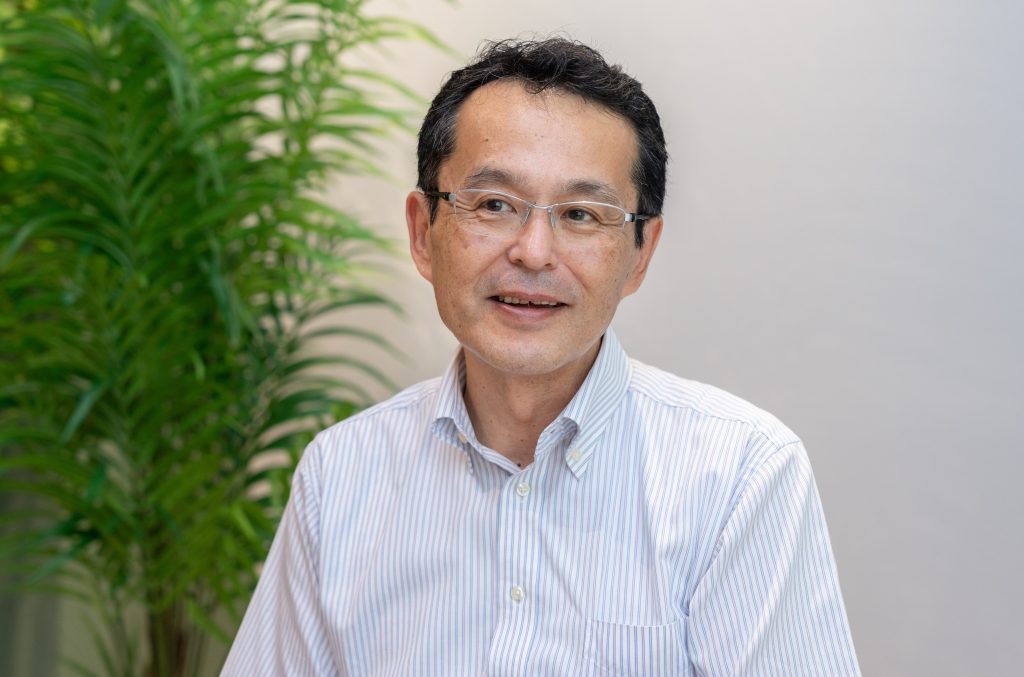
Minowa-sama: The other day, when I was reading a certain economic paper, I found an article in Kashiwa-no-ha that specializes in the manufacture of cell therapy drugs. Cell therapy is an important treatment in the future, and there may be room for our genetic analysis technology to contribute to its quality control. At the moment, I don't know what shape it will be, but I'm also looking forward to that possibility.
Mr. Imamura: Our current business is the contracted analysis service business and the diagnostic drug business, but in the future, we would like to apply our technology to challenge the “drug support business” to search for target molecules in drug discovery, for example, together with pharmaceutical companies. In this regard, we plan to proceed with joint research on foundations while obtaining research grants and grants (competitive funds) together with Tokyo University of Science. In the future, among Kashiwa-no-ha, which aims to become a "second Boston," I would like to be said to be "Imnogenetics if you ask for genetic analysis."
